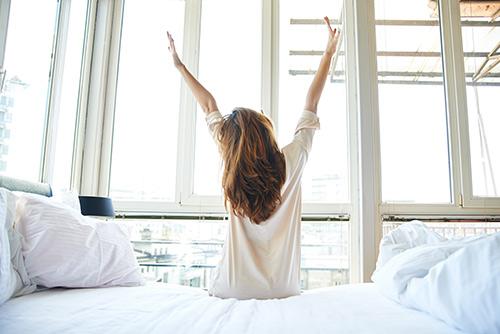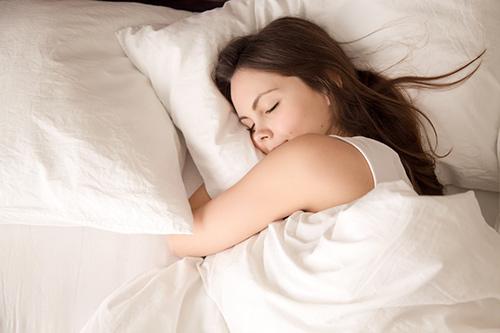According to the Centers for Disease Control and Prevention, most adults need 7-9 hours of sleep per night. Even though many of us are tired after a long day, it can still be difficult to fall asleep and get enough hours of sleep throughout the week. Sleep hygiene involve the factors that contribute to our sleep quality and daytime alertness. It starts with establishing good sleep habits to improve our physical health, mental health, and overall quality of life. Below are a handful of simple tips to help your sleep hygiene.
Avoid caffeine, alcohol, nicotine, and other chemicals that interfere with sleep
While all of these substances may seem enticing, especially during a fun night out, they often inhibit your ability to get quality sleep. Try to avoid the chemicals and substances above at least four to six hours before bedtime.
Be consistent with your sleep and wake time (including the weekends!)
If you only try one of these tips, this one may give you the most immediate payoff. A consistent routine helps your body recognize when it’s time to sleep and eventually makes wake times easier too. Try to avoid bedtime procrastination at night. A sleep tracker app or sleep diary are great ways to hold yourself accountable.
Expose yourself to natural light
While it may seem counter intuitive, natural light helps our sleep-wake cycle. Sunlight helps our brain and body know when it’s daytime. A quick walk outside can even help!
Limit daytime naps to 30 minutes
Although naps can boost productivity during the day, make sure to limit your naps to no more than 30 minutes. Also, try to nap no later than 5 p.m. It’s important to maintain a clear sleep cycle and long naps can easily disrupt sleep times.
Exercise
Alongside the many benefits of exercise, exercise can also help you have a more restful sleep. Be wary of intense evening workouts though!
Create a sleep-inducing environment
Make sure your bedroom is quiet, dark, and cool. White noise machines and earplugs can help with any sound issues. Blackout curtains and eye shades are excellent for creating a dark environment. Make sure your thermostat is set to a comfortable temperature for sleeping, ideally 60-67 degrees.
Establish a pre-sleep routine
A bedtime routine can help cue the body that it’s time to prepare for sleep. Relaxing in a warm bath, meditating, or reading a book are great ways to wind down from your day.
Limit screen time before bed
Try to stop using TVs, computers, and smart phones at least one hour before bedtime. An even better solution is to remove electronic devices from the bedroom! The blue light that’s emitted from these devices interferes with not only our ability to sleep but our quality of sleep.
Dedicate your bed to sleep
It’s important to subconsciously connect being in bed with sleeping. Make sure your bedroom is free from clutter and work responsibilities. Create an environment where you treat your bedroom as a haven for sleep. It will make a big difference!







I really enjoyed this article I love chocolate to
You always need your sleep or it can lead to alot of diffrent effects